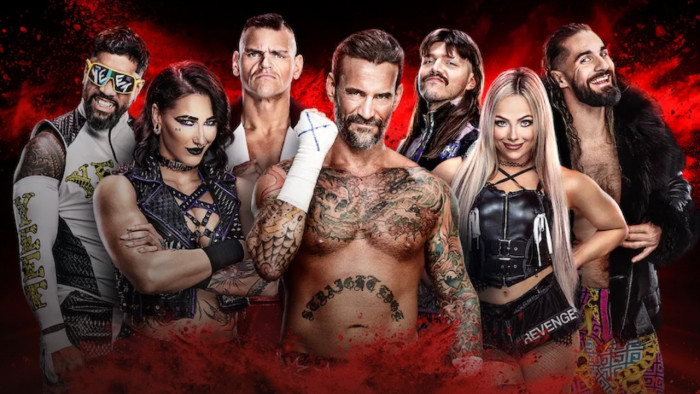Does MMA have an alt-right problem?
The UFC may have won the fight for legitimacy, but does MMA have a much tougher struggle on its hands?


There’s an art to a great post-match speech. For most sportsmen, a mix of endorphins and exhaustion makes anything more elaborate than squeezing out a handful of platitudes tricky, which is why the good ones – the Anything Is Possibles – stand out. True pros, of course, rehearse: and when Joe Rogan put a mic in new UFC welterweight champion Colby Covington’s face after a tough five-round fight, he knew exactly what he wanted to say. “I’m going to do what a real champion should do,” hooted Covington, to a chorus of boos. “I’m bringing this belt to The White House, and I’m putting it on Donald Trump’s desk.”
The fact that Covington appeared, a couple of weeks later, grinning in a MAGA hat next to a belt-toting Trump, only confirmed what most casual fans already know: the days of the UFC struggling to be recognised as a legitimate sport are over.
In its early days, the promotion had frighteningly few rules, pitted sumo wrestlers against bar brawlers, and was memorably dubbed “human cockfighting” by Republican senator John McCain. Progress was slow, then explosive; after teetering on the brink of bankruptcy and being bought by the casino-owning Fertitta brothers, the sport implemented dozens of rules, and saw its biggest turnaround after reality show The Ultimate Fighter introduced thousands of new fans to the fast-paced, almost-anything-goes sport with a finale that featured one of the consensus best fights ever.
In 2004, when The Ultimate Fighter debuted, the UFC had only $14.3m (£11.1m) in revenue. In 2016, it sold to entertainment group William Morris Endeavor for $4bn (£3bn), and went on to take a slice of the McGregor vs Mayweather bout, which took more than $600m (£464m). Pay-per-view might have seemed healthiest in the glory days of Ronda Rousey and Conor McGregor, but McGregor’s return fight – against undefeated lightweight champion Khabib Nurmagomedov at the start of the month – was the biggest in UFC history, for both pay-per- view numbers and gate revenue.
“We can’t escape the fact that MMA was once the combat sport of choice for skinheads”
At the same time, the sport has become respectable. Once upon a time, fighters wore Condom Depot logos on their shorts – now, everyone wears custom Reebok gear. There are dozens of franchised UFC gyms dotted across the US, with more planned for the UK. Demi Lovato used to date UFC middleweight champ Luke Rockhold and still regularly attends events. When the artist behind Sorry Not Sorry is talking about how she wants to compete in your sport, that’s a watershed moment.
And yet, to some fans at least, there’s something a bit off-putting about MMA. It appeals, after all, to the sorts of people who claim to hate snowflakes and participation trophies, while applauding up-by-your-bootstraps self-reliance.
It has a top contender in McGregor, who hung out with Vladimir Putin at this year’s World Cup, not long after smashing a bus window and injuring at least two of his peers. It has lightweight champ Nurmagomedov, who eagle-dove out of the cage to attack one of McGregor’s teammates after pummelling the ex-champ, provoked inpart by McGregor calling him a “backwards c*nt” for refusing to drink on religious grounds. It still has ring girls, while they’re being phased out of everything from F1 to darts. It has strong ties with the military. It’s violent. And it sometimes attracts a bad crowd.

Dana White speaks at the Republican National Convention
“We can’t escape the fact that MMA was once the combat sport of choice for skinhead, tattooed white guys, and there have been – and still are – right-wing brands that have been associated with the UFC and MMA in general,” says Brad Wharton, play-by-play commentator for Cage Warriors. “You have current UFC sponsor Grunt Style, which is pro-gun, pro-Republican, etc. If you look to Russia and some of the Scandinavian countries, there have been white nationalist brands and organisations closely involved with MMA.”
Joe Rogan, popular longtime colour commentator for the UFC, describes himself as “pretty liberal” – especially on issues such as gay marriage and universal healthcare – but he’s also hosted right-wing thinkers including Ben Shapiro, Gavin McInnes and Stefan Molyneux on his wildly popular (and non-UFC affiliated) podcast. With championship-level fighters also regularly popping in, Rogan’s podcast is a way for impressionable fight fans to find exposure to sometimes-troubling ideas: come for the fight bants, stay for the gender warfare.
The success of the UFC is also irrevocably intertwined with two of the most prominent Republicans in recent history. John McCain, the originator of the human cockfighting tag, spent years campaigning against MMA but might have been the man who saved it, forcing the reforms that turned it into a sport instead of a brawl.
“I consider John McCain the guy who started the UFC,” said UFC president Dana White in 2008. As the sport evolved, McCain shifted his opinions on it too, telling a reporter in 2014 that he would “absolutely” have tried mixed martial arts had it been a thing in his youth.
Trump, meanwhile, has his own history with its promotion. In 2001, when the Fertittas had just taken over the event but the sport was still effectively blacked-out in the US, Trump allowed several shows to take place at the Trump Taj Mahal in Atlantic City. The favour wasn’t forgotten; at the 2016 Republican National Convention, White gave a speech in support of then-nominee Trump’s presidential bid, calling him a man with “great business instincts” and “a fighter”.
The UFC president eventually visited The White House for dinner, and when Trump later attacked NFL player Colin Kaepernick’s decision to kneel during The Star-Spangled Banner, White said that he believes in “standing for the national anthem”. This month, the organisation’s long relationship with Trump became the subject of one of 25 mini- documentaries it released to celebrate 25 years in the business. And, maybe more importantly, then-owners the Fertittas donated millions to Republican efforts during 2016’s election campaign.

Eli Harold, Colin Kaepernick and Eric Reid take a knee, prior to the game against the Dallas Cowboys at Levi Stadium on October 2
How much of this is politics and how much is just good business? It’s tough to say. “[Trump] pretty much single-handedly paved the way for the Fertittas to take the brand to Vegas, so I think this is more of a favour being repaid,” says Wharton. “Ari Emanuel, the CEO of the UFC’s parent company, is Trump’s former agent and long-term friend. Emanuel’s company bought the Miss Universe pageant off him when he ran for office, and Trump donated to Ari’s brother Rahm’s political campaign. But Ari financially backed Clinton in the 2016 elections and his brother is also a Democrat, so there’s a relationship there that exists in spite of politics, rather than because of politics.”
The UFC has also shown zero-tolerance on more extreme right-leaning brands in the past. “The sport in general has been fairly good at ostracising people with really extreme right views,” says Wharton. “There have been a number of fighters blacklisted from various shows due to far-right affiliations – the UFC notably cut ties with welterweight Benjamin Brinsa when he was linked with far-right hooligan groups.” And it’s not as if the UFC won’t tolerate dissent: when heavyweight title contender Francis Ngannou declared Trump “a shame for America”, White defended his right to speak his mind, saying, “The beautiful thing about this country is anyone can have an opinion.”
“There have been a number of fighters blacklisted from various shows due to far-right affiliations…”
Meanwhile, the UFC continues to push a progressive agenda in other ways, business-minded or otherwise. In the wake of Rousey’s success, it pushes its women’s division – in importance, and sometimes in pay-grade – to an extent that shames most other sports. It celebrates its openly gay fighters – in at least one instance, giving an on-air shoutout to fighters Amanda Nunes and Nina Ansaroff. The UFC tends to react swiftly when players stray into homophobia or racism, arguably better than football manages. And there are dozens of progressive-thinking fighters, occupying every position on the political spectrum.
“It’s a niche sport that happens to be pretty violent on the face of things,” says Wharton. “But what I find beautiful about MMA is that when you’re on the mats or in the cage, it transcends politics, race and religion. It’s incredibly inclusive for both competitors and fans.” It is, after all, just two people, locked in an Octagon, having a fight. And most fans will be tuning in to watch Covington get knocked out.
Images: Getty
Illustration: Zohar Lazar
Latest
Related Reviews and Shortlists










